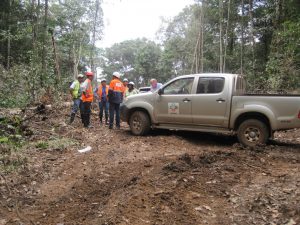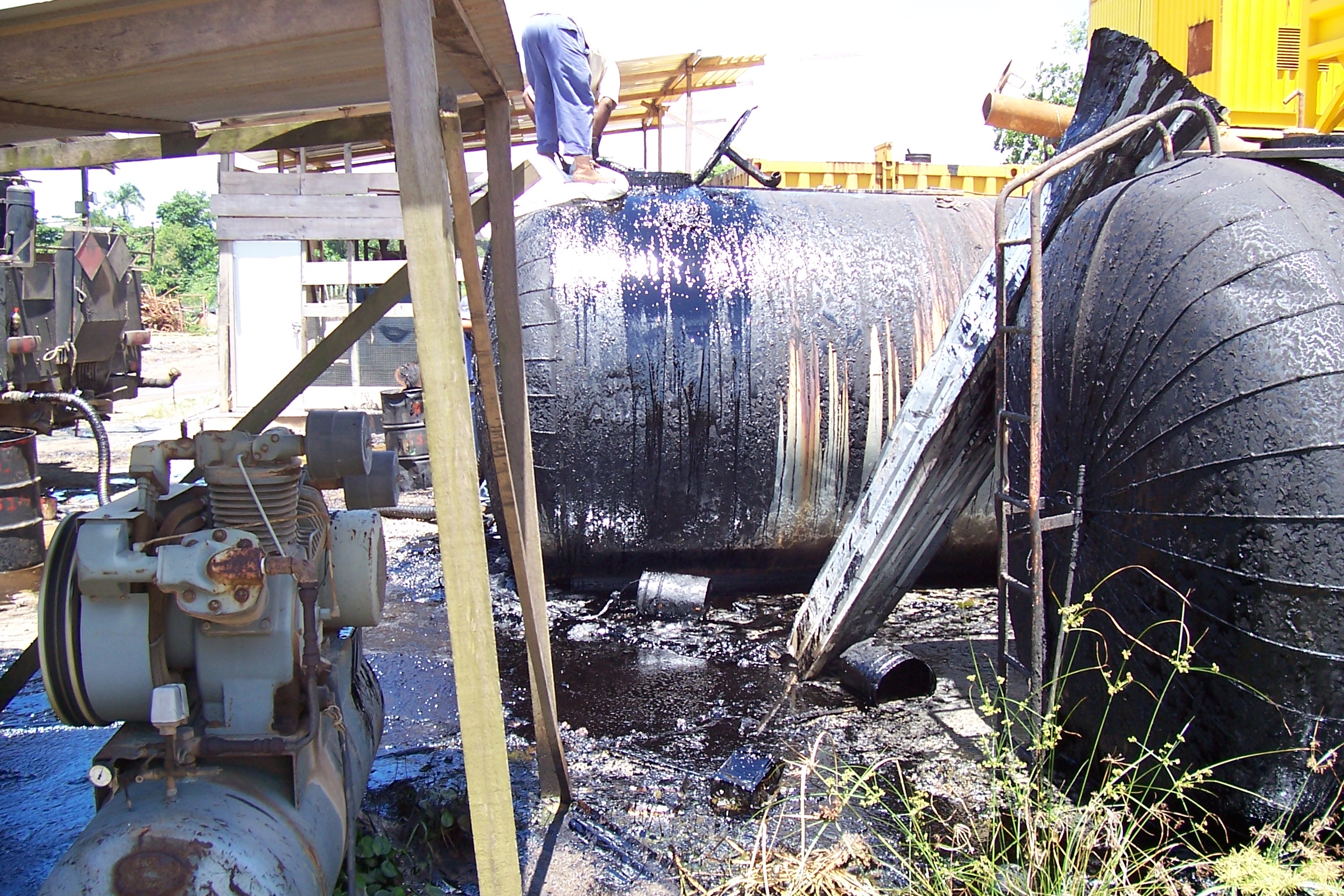EME Kantoor
Office of Environmental Monitoring and Enforcement
The Office of Environmental Monitoring and Enforcement monitors other government agencies with respect to their impact on the environment, and monitors the implementation of mitigation measures agreed upon in major EA’s. The Office provides the direction for civil enforcement activities related to air, land, and water pollution, and to waste, toxic substances, and pesticides. The Office guards against the import of hazardous waste and the illegal export of plants and animals. Specifically, the Office carries out the following tasks:
1. Monitoring of environmental parameters
Scarcity of technical expertise and financial resources requires maximum use of existing laboratory facilities and manpower to carry out the necessary environmental monitoring and quality control. A number of laboratory facilities exist at the University, at Government agencies, and in the industry.
2. Enforcement of existing environmental legislation
The Office works together with the Environmental Legal Services to ensure compliance with environmental legislation and to invigorate the enforcement of existing environmental legislation. This will involve several tasks:
- Inter-ministerial task force
As a short term strategy the Office will establish an inter-ministerial task force to invigorate enforcement of environmental legislation in Suriname using more effectively existing tools.
- Monitoring and reporting the level of enforcement
The Office will conduct surveys of enforcement tools in operation, analysis of enforcement levels and will regularly publicize the results.
- Training for environmental enforcement
The Office will organize training for officers involved in enforcement of environmental legislation in line ministries and will send one of its staff for advanced training abroad.
3. Category C guidelines and Environmental Advise
The EME office also provides assistance and advise to permitting agencies such as the Ministry of Trade and Industry AND the Districts commissioners. With Suriname’s development processes there are a lot of micro-companies being set up but do not fall into the Category A/B of the EIA process but do fall within the Category C. In this regard the office develops specific guidelines that helps create environmental safeguards within these companies. Usually these guidelines are attached as requirements to the permits.
These activities are very intensive, as there are a lot of these small-scale companies, and require professional assessments by the office.




Meet the EME Office



